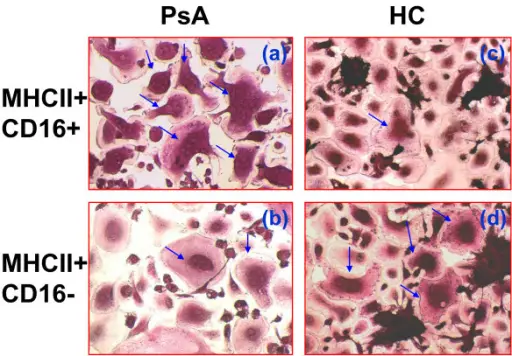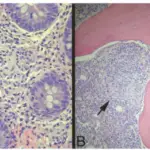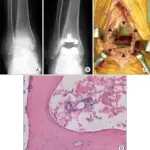Psoriatic arthritis is a type of inflammatory arthritis that occurs in a subset of patients with psoriasis.
What is the Pathology of Psoriatic Arthritis?
The pathology of psoriatic arthritis is:
-Etiology: The cause of psoriatic arthritis is unknown. Heredity may play a role.
-Genes involved: None.
-Pathogenesis: The sequence of events that lead to psoriatic arthritis include potential triggers such as trauma, stress, environmental factors, infections, obesity, and smoking.
-Histology: The histology associated with psoriatic arthritis shows predominantly tortuous, bushy vessels
How does Psoriatic Arthritis Present?
Psoriatic arthritis usually appears in people between the ages of 30 to 50 years old. Symptoms vary from person to person but typically include arthritis and psoriasis.
How is Psoriatic Arthritis Diagnosed?
Psoriatic arthritis is diagnosed through various tests. X-rays often are taken to look for joint damage. MRI, ultrasound, or CT scans can be used to look at the joints in more detail. Blood tests may be done to rule out other types of arthritis that have similar signs and symptoms, including gout, osteoarthritis, and rheumatoid arthritis.
How is Psoriatic Arthritis Treated?
Psoriatic arthritis is treated with NSAIDs, DMARDS, and TNF inhibitors.
What is the Prognosis of Psoriatic Arthritis?
The prognosis of psoriatic arthritis is fair.



